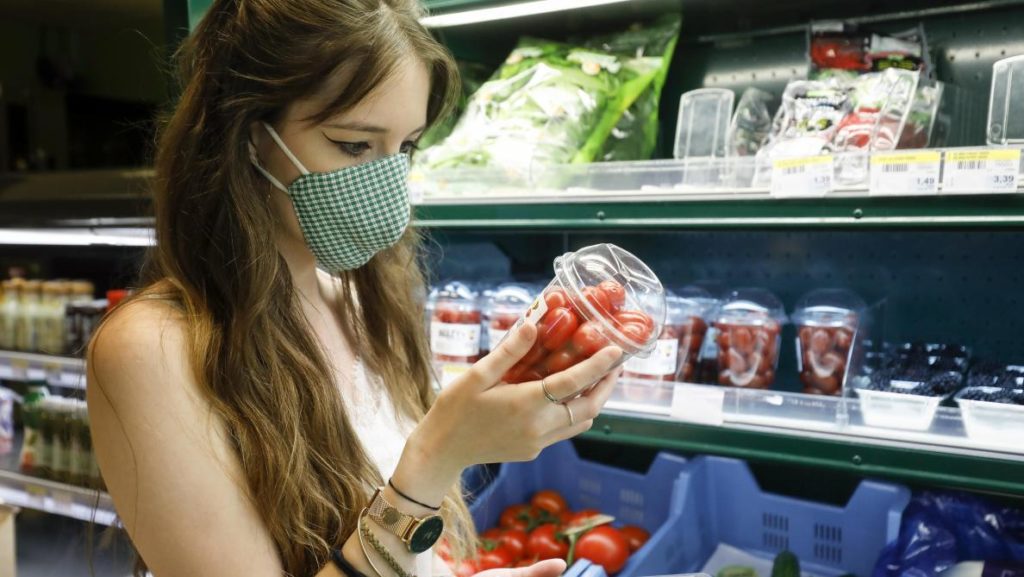The government could change its mind and make it compulsory to wear a face mask in shops if the Covid-19 situation in the country changes, health minister Maggie De Block said.
Speaking on the VRT’s Sunday politics programme De zevende dag, De Block was answering criticism of the decision taken last week by the national security council, when the government ignored the advice of experts and decided not to make mask-wearing compulsory.
According to experts, wearing a mask would offer protection against infection in shops, where social distancing is not always possible, people come in close contact with strangers indoors, and proper ventilation is not always available.
The government instead said wearing a mask in such conditions was “strongly recommended,” a form of words the experts said did now go far enough.
“Who would still pay taxes if it was only strongly recommended,” asked Professor Marc Van Ranst in response.
De Block, meanwhile, was in discussion with Dr Erika Vlieghe, an infectious disease specialist who also chairs the GEES – the group of experts charged with establishing an exit strategy from the lockdown.
Dr Vlieghe saw two benefits to the compulsory mask: one medical and one social.
The medical argument is clear and proven, she said, pointing to the widespread use of face masks in hospitals everywhere, a practice that is universal and long pre-dates the coronavirus.
The social argument is just as compelling, she argued.
“There is enough scientific evidence about the effectiveness of face masks,” she said. “Do they stop everything and do you avoid new infections? No, but they do stop a lot. Moreover, you create awareness among people that we are a long way from putting the virus behind us. It may sometimes feel that way now. But the sight of the mask is a clear reminder of the gravity of the situation."
According to De Block, the discussion is not closed by the security council’s decision.
“At the time of the decision, the number of new infections was steadily decreasing. That makes it difficult to explain to people why the measures are being tightened. However, we have now seen an increase in weekly averages for the first time, and we will be monitoring those figures very closely.”
According to figures from the national health institute Sciensano, the number of new cases of infection has been increasing slightly over the past week or so, even as other indicators such as hospital admissions, intensive care cases and deaths are all declining.
“If those indicators continue to rise, we must and we will intervene,” said De Block.
And she made reference to the incidents last weekend in Ixelles and Anderlecht in Brussels when hundreds of young people gathered after the bars closed, ignoring distancing rules and with not a mask in sight.
“Intervening means tightening up the rules, and it is not just about making face masks mandatory,” she said. “Then we'll have to go further. All those young people who refuse to obey the rules and organise parties have been warned.”
Alan Hope
The Brussels Times

